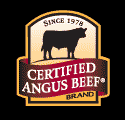Roundup Ready Alfalfa:
Pros vs. Cons
Recent approval of Roundup Ready alfalfa brings both promises and challenges.
Roundup Ready alfalfa provides a unique opportunity to grow quality forage, says Tim Schnakenberg, an agronomy specialist with University of Missouri (MU) Extension.
"The recent USDA approval of Roundup Ready alfalfa is a welcome decision by many producers, though not all," he says. "There are some who are skeptical about using a genetic-engineered product that is proprietary to only a few companies. There are many who are also concerned about resistant weeds developing in a few years."
There are only a few Roundup Ready alfalfa fields around Missouri that were established when it was last on the market.
"Five years later, some that I have seen are still productive and some of the cleanest alfalfa fields around. The producers often will incorporate their insecticide spray with the glyphosate in a one-pass system, saving money on applications," Schnakenberg says.
According to Schnakenberg, there are many pros and cons to using this product.
Pros include more broad-spectrum weed control, less-expensive herbicide applications than conventional products, potential for a higher-quality product, improved stand persistence, limited crop rotation restrictions and no crop injury compared to some of the conventional herbicides.
"I can't quote research on this, but it makes good sense that if weeds are kept at bay routinely in an alfalfa stand that the persistence of the stand will be longer. This must be accompanied by good fertility to make this happen," Schnakenberg says.
Since conversion from fescue fields to alfalfa is a common occurrence in Missouri, the use of glyphosate in-crop for alfalfa helps in keeping newly established fields from becoming inundated with regenerated fescue.
"This can be a tremendous advantage since many farmers do not take the time and effort to follow the spray-smother-spray approach in preparing for an alfalfa stand. Since crabgrass is sometimes the number one weed problem in alfalfa, it's good to know that glyphosate can easily take it out," Schnakenberg says.
Cons to the product include the up-front tech fee, no residual control, potential for weed resistance with time and the weakness of glyphosate on specific weeds (curly dock, fleabane, morningglory, smartweed, nutsedge, henbit).
"The resistance issue has become huge in soybeans, and there is potential for some concern in Roundup Ready alfalfa over several years. The difference is that fewer weeds in alfalfa fields, compared to soybean fields, have the opportunity to go to seed, lowering the potential for resistance to occur," Schnakenberg says.
One of the disadvantages for hay producers is if a farmer will be using glyphosate there is not room for a grass, such as orchardgrass, to be mixed in the stand.
"In general, the horse market has trended lately to prefer more of an alfalfa-grass mix versus a straight alfalfa product. Orchardgrass mixed in the stand also aids in a faster drying time," Schnakenberg says.
Producers who think this is the answer to all their alfalfa concerns will find that it is not a perfect system, but Schnakenberg says it has potential for greater success with alfalfa.
"Fertility and cutting management is still going to be a primary key for success. This technology is not for everybody but provides another tool for alfalfa production," Schnakenberg says.











